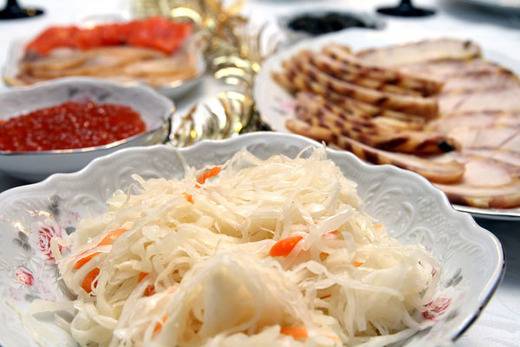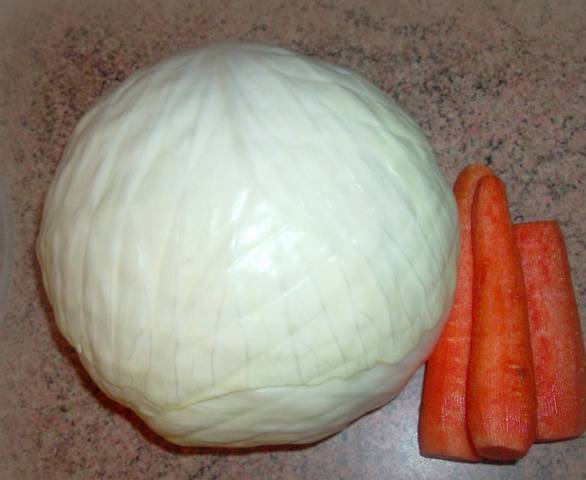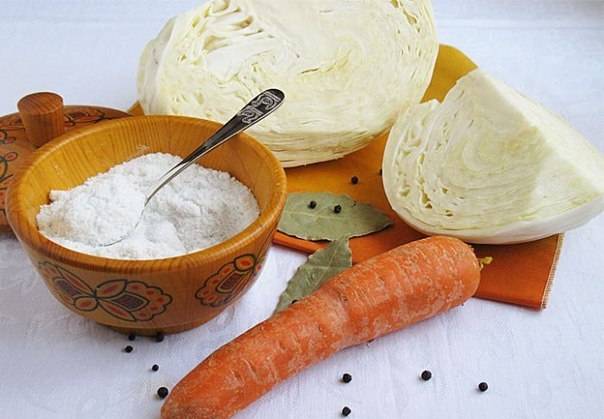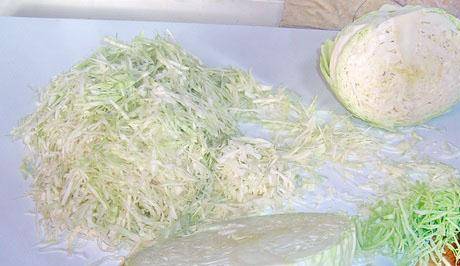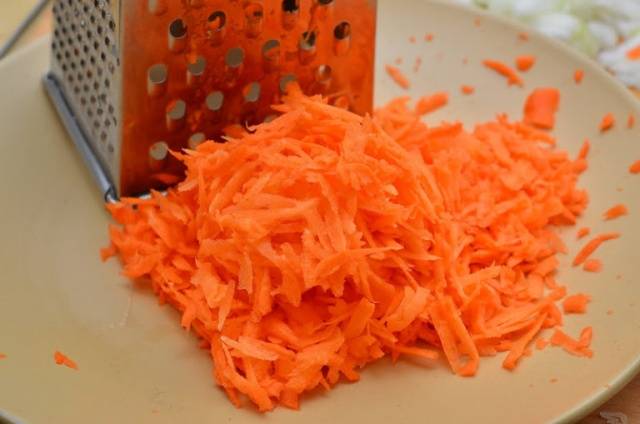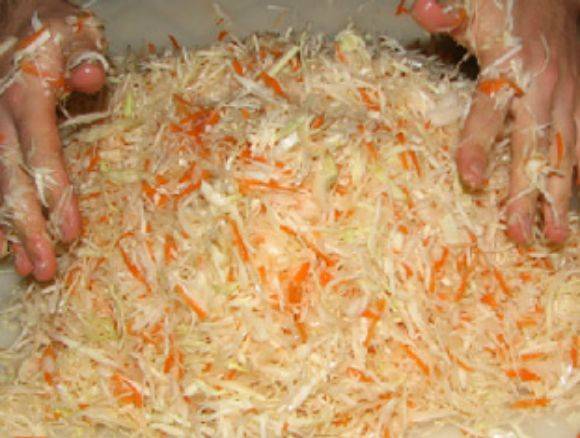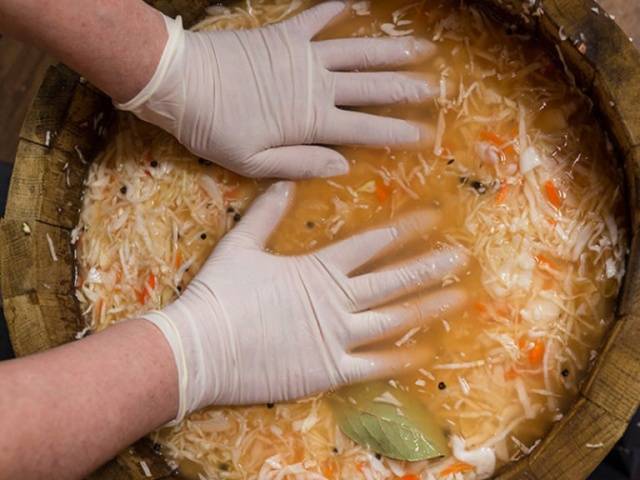Content
It's hard to imagine a family that would be absent sauerkraut... This is the most convenient way to store vegetables in winter. There are a huge number of options for pickling. Each housewife has her own little secrets to get a fragrant and crunchy cabbage.
Many of us remember how in childhood we ate salads, cabbage soup, pies and pies on both cheeks in the village with our grandmother. Her cabbage was delicious. Of course, some of the secrets of pickling cabbage are lost today. But we will try to tell you how to ferment cabbage according to your grandmother's recipe, so that you can provide your family with a natural product for the winter.
The benefits of sauerkraut
We did not speak in vain about pickled cabbage. After all, a fresh vegetable loses some of its beneficial properties during storage. But cabbage from a barrel is a real treasure of health:
- In sauerkraut, ascorbic acid is several times more than in fresh. Thanks to this, immunity is maintained at the proper level in winter.
- People who consume pickled vegetables every day are less sick with colds. Their gums never bleed.
- This vegetable, pickled according to grandmother's recipes, is an excellent antioxidant and participates in metabolism.
- In addition to vitamin C, it contains the entire group of vitamins B and K. Sauerkraut is rich in potassium and sodium, calcium and iron, phosphorus, molybdenum, sulfur and chromium, copper and fluorine and other trace elements. All of them contribute to the rejuvenation of the human body.
It is also useful to consume pickled vegetables because the iodine contained in it maintains blood sugar in the desired range.
Which cabbage to choose
Important! To ferment cabbage according to your grandmother's recipe, you must first select it, because not every vegetable is suitable for this operation.
- Those who have fermented white cabbage for more than one year are advised to use only winter varieties. The best are "Glory", "Moscow late"," Sibiryachka "," Stone Head "," Amager ". The last variety, when cut, is always greenish, but after lying in the basement, it becomes snow-white. For fermentation, it is perhaps the most suitable. Of course, in the store this issue is more difficult to solve, but late-ripening varieties are specially grown in their garden.
- The head of cabbage ready for fermentation should be white, juicy, crunchy, as in this photo.
- The forks should be large, tight, so there will be less waste.
After fermentation, cabbage becomes soft and bitter.
Grandma's recipe
Of course, today it is not so easy, even using all the ingredients exactly, to get such cabbage as our grandmothers did. The fact is that this vegetable is fermented, according to the rules, in an oak barrel. It is its aroma that gives a unique taste and crunch to the finished product. And today they are salting forks in enameled dishes, in jars, plastic bags. Therefore, we always lose to grandma's sauerkraut.
Ingredients
If this is your first time brewing, start with a small amount of food. For one kilogram of white forks according to grandmother's recipe, you need to cook:
- juicy carrots - 1-2 pieces;
- coarse salt (not iodized!) - 1 tablespoon;
- black pepper - 2-4 peas;
- lavrushka - 1-2 leaves;
- dill branches with a seed basket.
Fermentation process
We do not start souring cabbage for the winter according to grandmother's recipe right away, first we prepare vegetables:
- Remove the top leaves from the cabbage heads, clean them from the slightest damage. To ferment a vegetable according to grandmother's recipe, we hang the main ingredient in a peeled form, since it is by its weight that we will be determined with the rest of the ingredients. Lack of salt leads to the appearance of mold, excess - makes it unusable.
- Cut into thin strips.
- Rinse the carrots thoroughly, peel them. Wash and dry again. You can shred it in different ways: chop it on a grater, whoever cuts it with a knife. Yes, and grandmother's recipes allow it.
- We cover the bottom of the container with cabbage leaves, put several branches of dill (without green leaves) and lightly sprinkle with salt.
- We lay out the chopped vegetable on a clean table, sprinkle with salt and rub it lightly with our hands until the juice appears, as our grandmothers did. Add carrots, spices, mix gently again.
- We spread it in a prepared container and tamp it. We do the same with the rest of the cabbage.
- We fill the container not to the very top, so that there is space for the juice. It will appear at the end of the cabbage laying. Cover it with cabbage leaves, dill sprigs on top.
- To fermentation for the winter succeeded, the workpiece needs to be pressed down with oppression. Our grandmothers used a birch circle and a special stone. Today, many housewives replace them with a plate and a container of water.
Sauerkraut for the winter should be kept in a warm room for 4-5 days. Usually the container is placed on the floor.
On the second day, foam will appear on the cabbage sauerkraut according to my grandmother's recipe. It needs to be collected, and the cabbage harvest itself for the winter must be pierced to the bottom several times a day so that gases come out. If this is not done, an unpleasant aftertaste will appear. The smell will disappear when the fermentation process is over.
You can use sauerkraut in winter keep in the cellar, then she is kept in the house for no more than 3 days. If there is no such room, we take it out into the street, into the frost. In this form, it is stored even better, does not oxyderate.
Grandma's recipe:
Conclusion
There is nothing particularly difficult in preparing a crispy vegetable according to grandmother's recipe for the winter. Even novice hostesses can handle this procedure. The main thing is to choose the right varieties of white vegetable for pickling, follow the recommendations.
Yes, one more thing: the indicated amount of salt per kilogram of cabbage is approximate. Each variety requires a different amount of this ingredient. In order not to be mistaken, taste it. In any case, the chopped cabbage should be saltier than for the salad.
